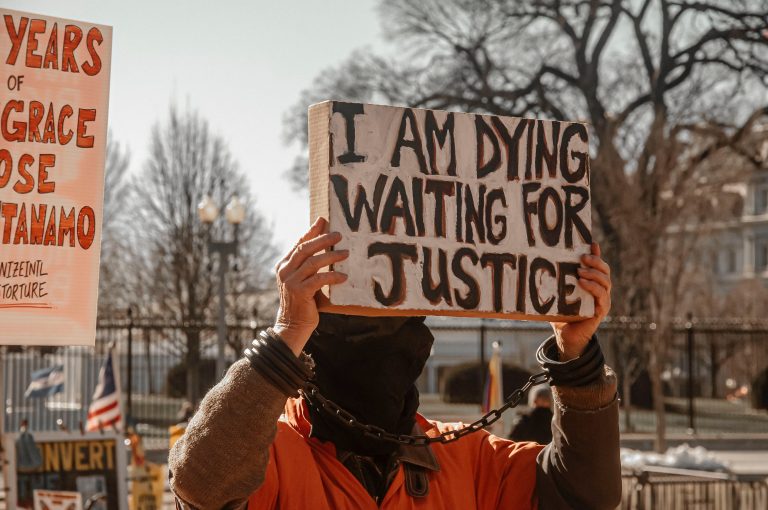Editor’s note: This mini-symposium on the Abu Zubaydah decision, rendered by the Supreme Court on March 3, 2022, raises important issues about the state secrets doctrine and transparency in democratic governance. The first two pieces are reprinted with permission from the original publishers. All posts are available here.
This opinion was originally published on SpyTalk.
State Secrets and the Blinding of Justice
The Supreme Court’s rejection of Abu Zubaydah’s plea is another black mark on American justice
With its decision on March 3 blocking a Guantánamo detainee’s petition to question CIA contractors about his torture at an agency “black site” 20 years ago, the Supreme Court added another miserable chapter to the long history of cover-ups related to its criminal treatment of terrorist suspects.
The long discredited legal process at Guantánamo has become so snarled in procedural and constitutional knots that talks are underway now between the government and defense lawyers to swap out death penalty trials in exchange for guilty pleas and life terms in a federal penitentiary or Guantánamo. In 2011 Congress blocked the Obama administration from trying the detainees in stateside federal courts.
Lawyers for Abu Zubaydah, a Saudi-born Palestinian refugee captured in Pakistan and held without charges or trial in Guantánamo since 2006, had sought the testimony of James Mitchell and John “Bruce” Jessen, two former CIA contract psychologists who devised the agency’s so-called “enhanced interrogation techniques,” or EITs. The Guantánamo techniques were based on the same abusive interrogation practices employed at the CIA black sites, Afghanistan, and eventually Abu Ghraib, the notorious Iraqi prison where detainees were photographed in humiliating and degrading poses.
The Biden administration argued that the information Zubaydah sought would reveal “state secrets” that could harm U.S. national security. With this ruling, American and even foreign courts have been blocked from learning officially confirmed facts about the state-sponsored torture the CIA was engaged in.
The court rebuffed Zubaydah’s petition on a 7-2 vote, with Associate Justice Stephen Breyer writing for the majority.
“In our view,” he said, “the government has provided sufficient support for its claim of harm to warrant application of the privilege.” Previously, in 2019, the U.S. Court of Appeals for the 9th Circuit had sided with Zubaydah, now 51, rejecting the government‘s claims of potential harm to national security.
Justice Neil Gorsuch blasted the majority decision, writing that the government should come to terms with what it did to Zubaydah, whom the U.S. mistakenly labelled a high level al-Qaeda terrorist and tortured for days with waterboarding, sleep deprivation, rectal penetrations and more. A report by the Senate Intelligence Committee in 2014 found the CIA “significantly overstated” Zubaydah’s role in al-Qaeda.
Mark Fallon is a former NCIS Deputy Assistant Director and Homeland Security Senior Executive. Was the former Special Agent-in-Charge of the Pentagon task force established to bring suspected terrorists to justice before military commissions at Guantanamo Bay.
The opinions expressed in this post are those of the authors and do not necessarily represent CERL’s official views.






